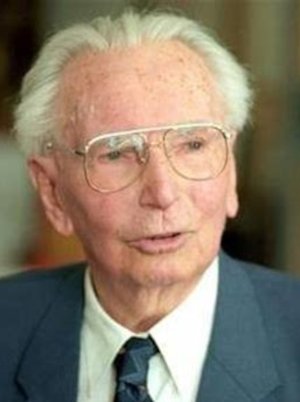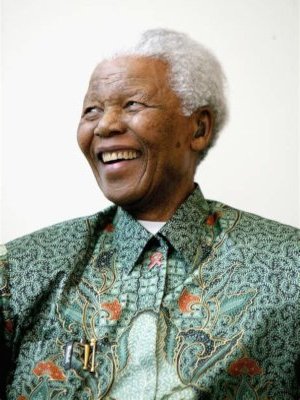Focus on positive things
Remember that no matter what happens to you over the years, life is ALWAYS worth living. We all have times in life when things are difficult. For some, the depth of those difficulties are deeper than others. But, you should never give up hope of a brighter future. As the Buddha himself said (although obviously not in English..) Everything is impermanent.
Things will get better, we just have to stick with it.
Everyone has something good to focus on. So focus on these positive things. Whether it’s a special person, a skill, or ability, or even your personality. Whatever it is for you, find it, then focus on it.
Some good examples of doing just that are Oprah Winfrey, Viktor Frankl and Nelson Mandela.
Oprah Winfrey

Oprah was born into poverty, the Daughter of an unmarried teenage Mother.
After her birth, her Mother left Oprah with her Grandmother in rural Mississippi and left. Her Grandmother was so poor that she couldn’t afford to buy clothes. Oprah had to wear dresses made from potato sacks.
She was often beaten with a stick for not doing her chores, or behaving badly. Also, she freely admits she was raped at eight years old and that she’d been molested by her Uncle, Cousin and a family friend. As well as this, she also became pregnant at 14.
When most ‘normal‘ people would curl up in a corner and wait to die, she decided that she deserved better. She decided to focus on positive things and fought tooth and nail to get herself out of her situation and lead a more powerful existence.
The Forbes’ international rich list has Oprah listed as the first black woman billionaire in world history. In 2013, she regained the No. 1 slot on their ‘List Of The Most Powerful Celebrities‘
Viktor Frankl

Viktor was an Austrian neurologist and psychiatrist, and a Holocaust survivor, of Theresienstadt, Auschwitz, Kaufering and Türkheim.
He is best known for his memoirs in the book ‘Man’s search for meaning‘.
Viktor began his involvement with psychology when he took a course on Applied Psychology at night school as a teenager. After his graduation in 1923, he went on to study neurology and psychiatry at the University of Vienna, with a focus on depression and suicide.
In 1924, Frankl’s first scientific paper was published in the International Journal of Psychoanalysis.
He gained his MD in 1930. Then, in 1940, he joined the Vienna Rothschild Hospital as head of the neurology department. It was the only hospital in Vienna still admitting Jews.
In 1942, he was captured by the Nazis and sent to various concentration camps over the next three years. His father Gabriel died in the Terezin concentration camp (Theresienstadt) in 1942. His mother and brother, Walter, were both killed in Auschwitz.
Everyone around him was giving up and dying. But, he decided to find something to feel positive about. He put his focus on positive things, then immersed himself in imagining that outcome.
Everything can be taken from a man but one thing: the last of the human freedoms—to choose one’s attitude in any given set of circumstances, to choose one’s own way.
After the War
Once released after the War, he spent 9 days writing his most popular book, ‘Man’s Search for Meaning’. Originally titled, “A Psychologist Experiences the Concentration Camp”, it was released in German in 1946. The first edition was written anonymously.
He was surprised that out of the numerous books he wrote, the one that he wanted to publish anonymously became his most popular. In the following years, it’s been translated into 24 languages, been reprinted 73 times and sold over 10 Million copies.
In 1946, he was made the Executive Director of the Viennese Neurological Health Centre. This was a position he kept until 1971. With 29 honorary doctorates and 30 books, Frankl was the first non-American to receive the American Psychiatric Association’s prestigious Oskar Pfister Prize. By the time he passed in 1997, Frankl had lectured at 209 universities all over the world including Harvard and Stanford.
And all of this AFTER he’d spent three years in the very concentration camps that had killed his Mother, Father and Brother.
Nelson Mandela

And finally, there’s Nelson Mandela, or to give him his full Title, His Excellency Nelson Mandela, OM AC OC GCStJ GCH RSerafO NPk, had a huge advantage on most peoples upbringing. Born to the Thembu royal family, he was afforded many things that were unimaginable to the masses of South Africa at the time.
He studied law and became involved in anti-colonial politics. He then joined the ANC and became a founding member of it’s Youth League.
After being unsuccessfully prosecuted for treason, in 1962 he was arrested for leading a sabotage campaign against the apartheid government. He was sentenced to life imprisonment.
He spent 27 years in jail for speaking his truth. Once released, he didn’t see it as an end to his political career, but the beginning of a new one.
Before he sadly died in 2013 aged 95 years, he had gained international acclaim for his activism. He had amassed over 250 honours, including the 1993 Nobel Peace Prize, the US Presidential Medal of Freedom and the Soviet Order of Lenin.
All of this was achieved because even though he’d been locked away for more than a quarter of a century, he decided that the end result would bring much more pleasure for the masses, than any personal pain he was feeling.
So, there you have it. Three extraordinary people who took life’s lemons and made delicious lemonade. There are many more examples of people who’ve made their lives great after adversity.
Never give in to your demons. If you’re feeling low, lean on your relationship with your family. (that could be your biological family, or the people you’ve built familial relationships with)
Things will always get better.


